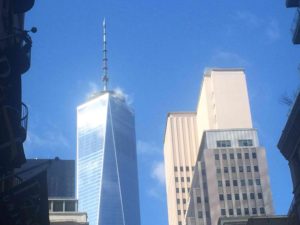
On April 22, 2016 the Second Circuit ruled that it is not unconstitutional to require non-resident attorneys to maintain a physical office in New York in order to practice law in that state’s courts. Schoenefeld v. State of New York, Docket No. 11‐4283‐cv.
Plaintiff Ekaterina Schoenefeld, a citizen and resident of New Jersey (admitted to practice law in New Jersey, New York, and California) had an office in New Jersey, but not in New York. She challenged the constitutionality of Section 470 of New York Judiciary Law, which provides:
“A person, regularly admitted to practice as an attorney and counsellor, in the courts of record of this state, whose office for the transaction of law business is within the state, may practice as such attorney or counsellor, although he resides in an adjoining state.”
Schoenefeld positioned that requiring nonresident members of the New York bar to maintain a physical ‘office for the transaction of law business’ within the state, when resident attorneys are not required to maintain offices distinct from their homes is unconstitutional under the Privileges and Immunities Clause.
The United States District Court for the Northern District of New York agreed and held that Section 470 was unconstitutional under the Privileges and Immunities Clause Schoenefeld v. New York, 907 F. Supp. 2d at 262–66.
On appeal, the Second Circuit sent a certified question to the New York Court of Appeals, which clarified that §470 requires a physical office being an address or a designated agent for service insufficient for Section 470 purpose. Schoenefeld v. State, 25 N.Y.3d 22, 6 N.Y.S.3d 221 (2015) (holding § 470 to require physical office).
Now the Second Circuit holds that Section 470 of New York Judiciary Law “N.Y. Judiciary Law § 470 does not violate the Privileges and Immunities Clause of the U.S. Constitution. U.S. Const. art. IV, § 2.
The Second concluded that
“470 does not violate the Privileges and Immunities Clause because it was enacted not for a protectionist purpose to favor New York resident attorneys but, rather, to provide a means whereby nonresidents could establish a physical presence in the state akin to that of residents, thereby resolving a service concern while allowing nonresidents to practice law in the state’s courts.”
The court held that there was in the requirement no protectionist purpose disfavoring nonresidents but only a “a service‐of‐process concern” and that “it is Schoenefeld who, in seeking to practice law in New York without a physical presence in the state, is looking to be treated differently from, not the same as, New York resident attorneys.”
The Second Circuit relied on McBurney v. Young, 133 S. Ct. at 1715 (see here) in which the US Supreme Court held that “state laws violate the Privileges and Immunities Clause only when those laws were enacted for the protectionist purpose of burdening out‐of‐state citizens.” (internal quotation marks omitted)
The NYSBA has formed a working group to review the decision since 20,000 of its members are nonresidents.
The unconstitutionality of the “adjoining state” requirement of Section 470 of New York Judiciary Law: There is a part of Section 470 of New York Judiciary Law that should not raise concerns, even if it sounds “scary”: the “although he resides in an adjoining state” part. The letter of the statute would seem to require a non resident lawyer to be a resident of an adjoining state, to be able to practice law in New York. This would be in addition to the requirement of maintaining an office in the state. This part of the statute is unconstitutional, of course. See Supreme Court of New Hampshire v. Piper, 470 U.S. 274 Indeed, more than 25 years ago, the courts of New York started to interpret Section 470 as to allow a nonresident attorney to practice in NY, wherever is their residence. See White River Paper Co. v. Ashmont Tissue, Inc., 110 Misc.2d 373, 376 (N.Y. City Civ. Ct. 1981). The New York Court of Appeals in its decision of March 2015 in the Schoenefeld case, implicitly approved this interpretation. Schoenefeld v. State, 25 N.Y.3d 22, 6 N.Y.S.3d 221 (2015)
For more information, Francesca Giannoni Crystal
